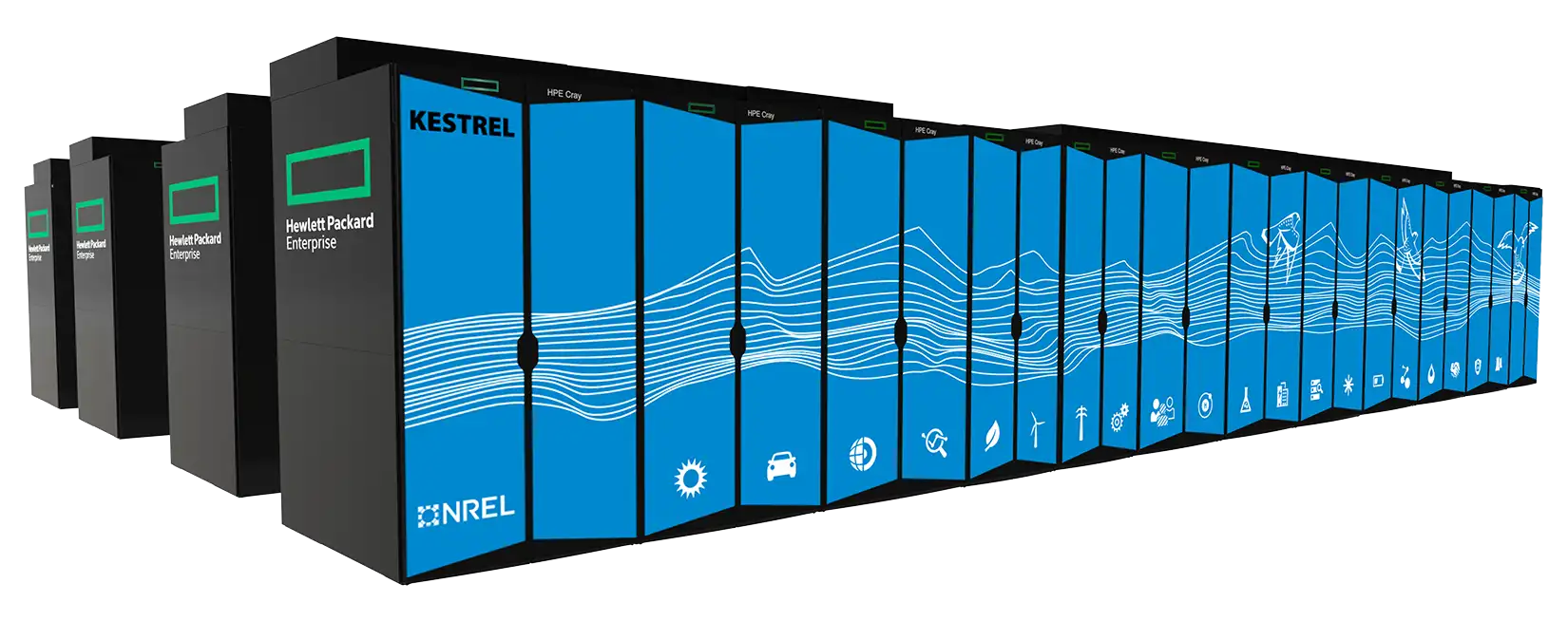High-Performance Computing User Facility
NLR's High-Performance Computing (HPC) User Facility features state-of-the-art computational modeling and predictive simulation capabilities to help researchers and industry reduce the risks and uncertainty of adopting new and innovative energy technologies.

The HPC User Facility provides computing capabilities to scientists and engineers working on solving complex computational and data analysis problems related to energy efficiency and renewable energy technologies. The work performed on the HPC systems leads to increased efficiency and reduced costs for these technologies, including wind and solar energy, energy storage, and the large-scale integration of renewables into the electric grid.
Kestrel Computing System
Kestrel is the latest HPC system at NLR dedicated to advancing renewable energy and energy efficiency technologies. Kestrel accelerates energy efficiency and renewable energy research at a pace and scale more than five times greater than Eagle, the previous supercomputer, with approximately 44 petaflops of computing power. See the Kestrel Versus Eagle Supercomputer Stack-Up infographic.
Like Eagle, Kestrel was designed and built by Hewlett-Packard Enterprise and has an innovative warm water liquid-cooling system that allows waste heat to be captured for reuse.
Previous Computing Systems
The two previous HPC systems at NLR were Eagle and Peregrine. Eagle, a 2,000-node, 8-petaflop system, served the lab from 2019 to 2024. Peregrine, a 2500-node, 2.4-petaflop system, was the first HPC system installed in the Energy Systems Integration Facility in 2013 and was in service through 2019.
Mass Storage System
The Amazon Web Services Mass Storage System is an additional data archival resource available to those who use NLR's HPC computing systems.
Share
Last Updated Dec. 4, 2025
